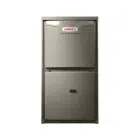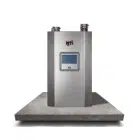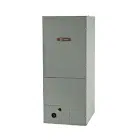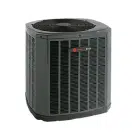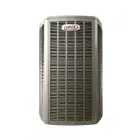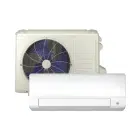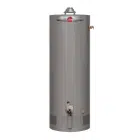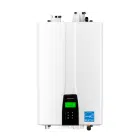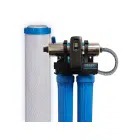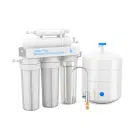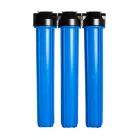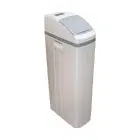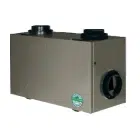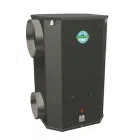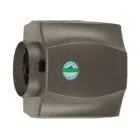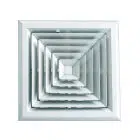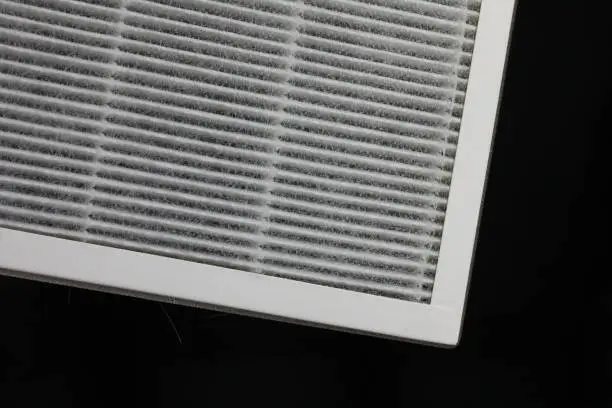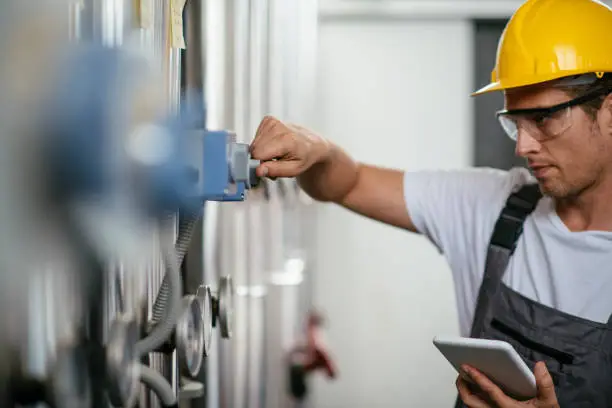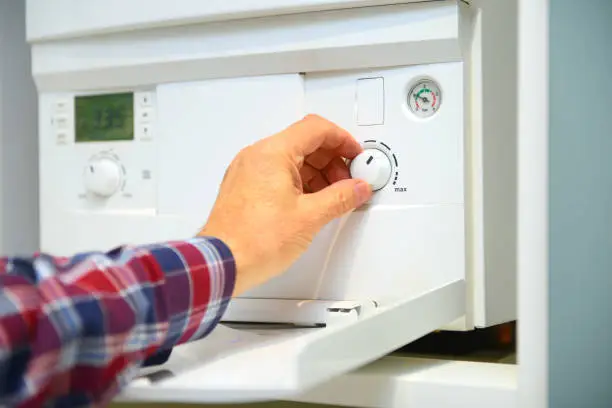
Table of Contents
Water heaters are an essential part of any home or business, providing the hot water needed for showers, cleaning, and other daily activities. As we move into 2024, technological advancements have introduced new models and features that make water heaters more efficient and user-friendly. This guide aims to help Canadian consumers navigate the choices available and find the best water heater for their needs. Whether you’re looking to upgrade your existing system or install a new one, this comprehensive guide will provide the information you need to make an informed decision.
Types of Water Heaters
Understanding the different types of water heaters is the first step in making a wise investment. Each type has its unique advantages and considerations.
Storage Tank Water Heaters
Storage tank water heaters are the most common type. They consist of an insulated tank where water is heated and stored until needed. The capacity of these tanks can vary, typically ranging from 20 to 80 gallons.
Pros:
- Lower upfront cost.
- Simple installation.
- Reliable and easy to repair.
Cons:
- Higher energy usage due to heat loss.
- Larger space requirement.
Ideal for homes with higher hot water demand and where space for the tank is available.
Tankless (On-Demand) Water Heaters
Tankless water heaters heat water directly without the use of a storage tank. When hot water is needed, cold water travels through a pipe into the unit, where it is heated by either a gas burner or an electric element.
Pros:
- Energy-efficient as they only heat water when needed.
- Unlimited supply of hot water.
- Space-saving design.
Cons:
- Higher initial cost.
- May require upgrades to your home’s electrical capacity or gas lines.
Perfect for smaller households or homes with limited space.
Heat Pump Water Heaters
Heat pump water heaters (HPWHs) use electricity to move heat from one place to another instead of generating heat directly. They work like a refrigerator in reverse, transferring heat from the air or ground to the water.
Pros:
- Extremely energy-efficient.
- Lower operating costs.
Cons:
- Higher initial cost.
- Requires a warmer climate or a warm location to install.
Best for climates that remain warm year-round or homes with a suitable indoor installation space.
Solar Water Heaters
Solar water heaters use energy from the sun to heat water. They typically consist of solar collectors and a storage tank.
Pros:
- Environmentally friendly.
- Low operating costs after installation.
Cons:
- High initial cost.
- Dependent on sunny weather and may require a backup system for cloudy days.
Ideal for environmentally conscious consumers and those living in sunny regions.
Condensing Water Heaters
Condensing water heaters are designed to capture and reuse much of the heat that would normally escape from the exhaust of a conventional water heater. They are highly efficient and typically run on natural gas or propane.
Pros:
- High efficiency.
- Lower operating costs.
Cons:
- Higher initial cost.
- Complex installation.
Suitable for homes with high hot water demand and existing gas lines.
If you’re unsure which type of water heater suits your needs best, turn to HVAC Service Solutions for professional consultation and guidance.
Key Considerations When Choosing a Water Heater
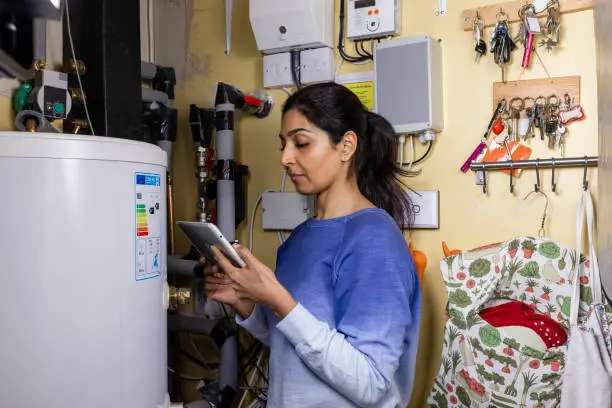
Choosing the right water heater in Canada involves evaluating several critical factors to ensure it meets your specific needs.
Fuel Source
The fuel source of your water heater can significantly impact its efficiency and cost. Common options include:
- Electric: Widely available, easy to install, and typically less expensive upfront but can have higher operating costs. Consider the electric water heater rating when choosing an electric model to ensure it meets your efficiency needs.
- Natural Gas: More efficient than electric models and can be cheaper to operate, but requires a gas line. Natural gas water heaters are known for their fast heating times and reliable performance.
- Propane: Similar benefits to natural gas but often used in rural areas where natural gas is not available. Propane water heaters are efficient and can be a good alternative where natural gas infrastructure is lacking.
- Solar Energy: Offers the lowest operating costs but requires a higher initial investment and sufficient sunlight. Solar water heaters are an excellent choice for reducing energy bills and environmental impact.
Capacity and Size
The capacity of a water heater should match your household’s hot water needs. For example, a family of four may need a 50-gallon storage tank, while a smaller household might opt for a tankless system. Consider the number of bathrooms, kitchen use, and laundry needs when determining the right size. It’s important to choose a water heater that can meet your peak hot water demand without running out.
Energy Efficiency
Energy efficiency is crucial for reducing long-term costs and environmental impact. Look for models with a high electric water heater rating or those that carry the ENERGY STAR label, which meet strict efficiency guidelines set by the U.S. Environmental Protection Agency. Efficient models might have a higher upfront cost but will save money on utility bills over time. Consider the annual operating cost and potential savings when evaluating different models.
Cost
Evaluate both the initial cost of the water heater and the long-term operating expenses. A more expensive unit might be cheaper to run, ultimately saving money. Don’t forget to factor in installation costs and potential upgrades to your home’s electrical or gas systems. It’s also wise to consider any available rebates or incentives for purchasing energy-efficient models.
Find out how much it costs to install a new tank water heater in Canada in our previous article via the link below.
https://thehvacservice.ca/how-much-does-it-cost-to-install-a-hot-water-tank-in-canada/
Installation Requirements
Different types of water heaters have specific installation requirements. Storage tank water heaters need ample space, while tankless systems might require upgrades to your electrical or gas lines. Consider ventilation requirements, especially for gas and propane models. Ensure you have adequate space and the necessary infrastructure to support the water heater you choose.
Local Climate and Environment
The climate can affect the efficiency of certain water heaters. For example, heat pump water heaters work best in warmer climates. In colder regions of Canada, you might need to consider models with better insulation or a backup system for solar heaters. Climate-specific considerations can help ensure optimal performance and efficiency.
Top Water Heater Brands for 2024
Dealing with a leaking air conditioner can be frustrating, but with the right knowledge and approach, it’s a manageable issue. By understanding the common causes of water leaks, knowing how to fix them, and taking preventative measures, you can keep your home comfortable and your AC unit running smoothly.
Remember, regular maintenance is key, and sometimes calling a professional is the best course of action. If you’re experiencing persistent issues or need expert advice, don’t hesitate to reach out to us at HVAC Service Solutions. Our team is here to help you keep your home cool and comfortable, no matter what the Canadian weather throws at you.
Rheem
Rheem is known for its innovative technology and wide range of water heaters. Their models are designed for durability and efficiency, making them a top choice for many homeowners. Rheem’s Gladiator series, in particular, offers advanced features such as leak detection and smart functionality, which allow for remote monitoring and control.
Notable Model: Rheem Gladiator Series
Feature | Description |
|---|---|
Type | Tank Water Heater |
Capacity | 40, 50, and 55 gallons |
Fuel Source | Electric |
Energy Efficiency | ENERGY STAR certified |
Key Features | Leak detection, Wi-Fi connectivity, smart control |
Warranty
| 12 years |
Ideal For
| Homes needing reliable and smart hot water solutions |
Rheem’s Gladiator series is particularly praised for its smart technology that provides users with peace of mind through its advanced leak detection and Wi-Fi capabilities. This makes it easier to manage and maintain the water heater efficiently.
Bradford White
Bradford White is renowned for its durability and high performance. The AeroTherm Series heat pump water heaters are a highlight, known for their high efficiency and suitability for environmentally conscious consumers. Bradford White has built a reputation for producing high-quality and long-lasting water heaters.
Notable Model: Bradford White AeroTherm Series
Feature | Description |
|---|---|
Type | Heat Pump Water Heater |
Capacity | 50 and 80 gallons |
Fuel Source | Electric |
Energy Efficiency | ENERGY STAR certified, high electric water heater rating |
Key Features | High efficiency, heat pump technology, multiple operating modes |
Warranty
| 10 years |
Ideal For
| Homes looking for environmentally friendly and energy-efficient solutions |
The AeroTherm Series stands out for its impressive energy efficiency, reducing utility bills while also being eco-friendly. The heat pump technology it utilizes makes it one of the most efficient water heaters on the market.
A.O. Smith
A.O. Smith offers a variety of water heaters, including the Vertex Power Vent Gas Water Heater, which is known for its high efficiency and low operating costs. A.O. Smith is praised for its innovation and reliability, making it a go-to choice for many households.
Notable Model: A.O. Smith Vertex Power Vent
Feature | Description |
|---|---|
Type | Tank Water Heater |
Capacity | 50 and 75 gallons |
Fuel Source | Natural Gas |
Energy Efficiency | High efficiency, 96% thermal efficiency |
Key Features | Power venting, high recovery rate, compact design
|
Warranty
| 6 years |
Ideal For
| Homes needing a high-efficiency gas water heater |
The Vertex Power Vent model is particularly suited for homes that need a high-efficiency gas water heater. Its compact design and high recovery rate make it a practical and efficient choice.
Bosch
Bosch is a leader in tankless technology, offering robust and energy-efficient solutions. The Greentherm 9000 series tankless water heaters are highly efficient and come with Wi-Fi connectivity for easy monitoring and control.
Notable Model: Bosch Greentherm 9000 Series
Feature | Description |
|---|---|
Type | Tank Water Heater |
Capacity | Up to 12.1 gallons per minute (GPM) |
Fuel Source | Natural Gas |
Energy Efficiency | 95% thermal efficiency |
Key Features | Wi-Fi connectivity, modulating gas valve, compact design |
Warranty
| 15 years |
Ideal For
| Homes needing continuous and efficient hot water |
The Bosch Greentherm 9000 series is an excellent choice for those looking for a continuous supply of hot water. Its high thermal efficiency and smart features make it a standout model.
Navien
Navien specializes in tankless water heaters that are compact, energy-efficient, and ideal for homes with limited space. Known for their performance and space-saving design, Navien water heaters are an excellent choice for modern homes.
Notable Model: Navien NPE-240A2
Feature | Description |
|---|---|
Type | Tank Water Heater |
Capacity | Up to 11.2 gallons per minute (GPM) |
Fuel Source | Natural Gas |
Energy Efficiency | 98% thermal efficiency |
Key Features | Advanced condensing technology, dual stainless steel heat exchangers
|
Warranty
| 15 years |
Ideal For
| Homes requiring high efficiency and space-saving hot water solutions |
Navien’s NPE-240A2 model is perfect for households looking for a high-efficiency, compact water heater. Its advanced condensing technology ensures maximum efficiency and performance.
By understanding the strengths and features of these top brands, you can make a more informed decision on the best water heater for your home or business. Whether you prefer the traditional reliability of tank water heaters or the modern efficiency of tankless water heaters, these brands offer a variety of models to meet your needs.
Innovations and Trends in Water Heaters for 2024
As we progress further into the 21st century, the water heater market is not just about providing hot water but also about integrating new technologies that enhance efficiency, convenience, and environmental sustainability. The innovations we see today are reshaping how we think about this essential home appliance, making them smarter, more energy-efficient, and environmentally friendly. In this section, we’ll explore some of the most significant trends and innovations in water heaters for 2024.
- Smart Water Heaters and IoT Integration
Smart water heaters can be controlled and monitored via smartphone apps, allowing users to adjust temperatures, track energy usage, and receive maintenance alerts remotely. This technology provides greater control over energy consumption and can help identify issues before they become serious problems. - Advances in Energy Efficiency
New models are designed to meet or exceed stringent energy efficiency standards, helping consumers save on utility bills and reduce their carbon footprint. Innovations such as improved heat exchangers, better insulation, and advanced control systems contribute to higher efficiency. - Environmental Considerations
There is a growing emphasis on eco-friendly water heaters. Solar models and heat pump water heaters are becoming more popular as consumers look for sustainable options. The use of recyclable materials and eco-friendly refrigerants in heat pump water heaters also reflects this trend. - New Materials and Technologies
Innovations in heat exchangers and insulation materials are improving the performance and longevity of water heaters. For example, some new models use stainless steel components to resist corrosion and extend lifespan. These advancements help ensure that water heaters are more durable and require less maintenance over time.
As you can see, the water heater market in 2024 is characterized by rapid technological advancements and a strong focus on sustainability. Smart water heaters with IoT integration offer unmatched convenience and energy savings, while advances in energy efficiency and the use of environmentally friendly materials are helping consumers reduce their carbon footprint. The shift towards eco-friendly models like solar and heat pump water heaters reflects a broader trend of environmental consciousness. Innovations in materials and technology are enhancing the performance and durability of water heaters, making them a smarter investment for the future.
How to Maintain Your Water Heater
Proper water heater maintenance is crucial to ensuring that your HVAC unit operates efficiently and lasts as long as possible. Whether you have a tank water heater or a tankless water heater, regular upkeep can help you avoid unexpected breakdowns, maintain consistent hot water supply, and save on energy bills.
Here are some essential maintenance tips to keep your water heater in top shape.
Innovations and Trends in Water Heaters for 2024
Proper water heater maintenance is crucial to ensuring that your HVAC unit operates efficiently and lasts as long as possible. Whether you have a tank water heater or a tankless water heater, regular upkeep can help you avoid unexpected breakdowns, maintain consistent hot water supply, and save on energy bills.
Here are some essential maintenance tips to keep your water heater in top shape.
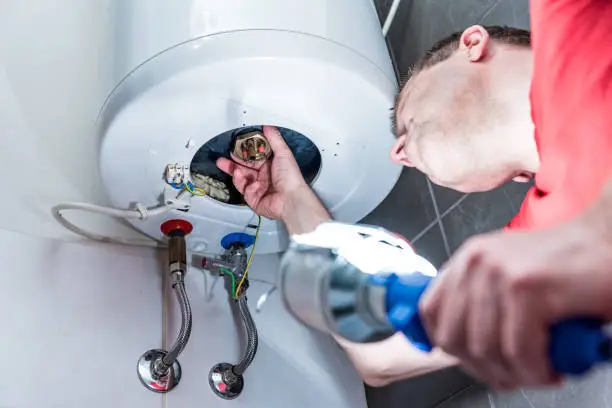
Flushing the Tank
For storage tank water heaters, flushing the tank annually is one of the most important maintenance tasks. Over time, sediment can accumulate at the bottom of the tank, which can reduce efficiency and potentially damage the tank. Here’s how to do it:
- Turn Off the Power: If you have an electric water heater, turn off the power at the circuit breaker. For gas water heaters, set the gas valve to the pilot setting.
- Connect a Hose: Attach a garden hose to the drain valve at the bottom of the tank and run the other end to a drain or outside area.
- Drain the Tank: Open the drain valve and allow the water to flow out until it runs clear. This process will remove most of the sediment buildup.
- Refill the Tank: Close the drain valve, remove the hose, and refill the tank. Once it’s full, turn the power or gas back on.
Inspecting the Anode Rod
The anode rod is a critical component in tank water heaters, designed to attract corrosive elements and protect the tank from rust. It’s recommended to check the anode rod every 2-3 years and replace it if it’s heavily corroded. Here’s how to inspect it:
- Turn Off the Water Supply: Shut off the cold water supply to the tank.
- Drain Some Water: Drain a few gallons of water from the tank to reduce pressure.
- Locate the Anode Rod: It’s usually on the top of the tank. Remove the hex head screw holding the rod in place.
Inspect the Rod: Pull out the rod and check for corrosion. If more than 50% of the rod is corroded, replace it with a new one.
Checking for Leaks
Regularly inspecting your water heater for leaks can help prevent water damage and costly repairs. Here’s what to do:
- Visual Inspection: Look around the base of the water heater for any signs of water pooling or rust.
- Check the Connections: Inspect all the plumbing connections, including the cold water inlet and hot water outlet, for any signs of moisture or corrosion.
- Monitor the Pressure Relief Valve: Look for any leaks around the pressure relief valve and the area where it discharges.
Testing the Pressure Relief Valve
The pressure relief valve is a safety feature that prevents your tank water heater from becoming dangerously pressurized. Testing it annually ensures it’s functioning correctly:
- Locate the Valve: The pressure relief valve is usually on the top or side of the tank, with a discharge pipe running down.
- Lift the Handle: Carefully lift the handle on the valve to let some water out, then release it. You should hear a rush of air or see some water and vapor escape.
Check the Discharge: If the valve doesn’t release water or continues to leak after testing, it may need to be replaced.
Importance of Annual Inspections
Beyond these regular maintenance tasks, scheduling annual inspections with a professional HVAC technician is highly recommended. A professional can:
- Perform a Thorough Checkup: Identify and address potential issues before they become serious problems.
- Test and Calibrate: Ensure all components are functioning correctly and calibrate the thermostat if necessary.
- Assess Efficiency: Check the overall efficiency of your water heater and suggest ways to improve it.
Proper maintenance of your tank or tankless water heater is essential for a reliable hot water supply, extended unit lifespan, and reduced energy bills; regular tasks such as flushing the tank, inspecting the anode rod, checking for leaks, and testing the pressure relief valve help prevent issues and ensure smooth operation—consult a professional if you’re unsure about any tasks.
Water Heater Installation and Replacement
When it comes to installing or replacing a water heater, it’s not just about swapping out one unit for another; it’s a process that involves careful consideration and attention to detail. From selecting the right model to ensuring proper installation, every step plays a crucial role in ensuring your hot water needs are met efficiently and effectively.
- Choose the Right Model: Based on your needs and the considerations outlined in this guide. Select a water heater that matches your hot water demand and efficiency preferences.
- Prepare the Installation Area: Ensure there is adequate space and the necessary utilities (electric, gas, water) are accessible. Clear the area and make any necessary adjustments to accommodate the new unit.
- Remove the Old Unit: Safely disconnect and remove the existing water heater. Properly dispose of the old unit in accordance with local regulations.
- Install the New Water Heater: Follow the manufacturer’s instructions for installing the new unit. Ensure all connections are secure and properly sealed.
- Connect Utilities: Securely connect the water, gas, or electric lines. Double-check all connections for leaks or loose fittings.
- Test the System: Check for leaks and ensure the water heater operates correctly. Run the system and verify that it provides consistent hot water and functions as expected.
For a hassle-free water heater installation or replacement experience, consider leveraging the expertise of HVAC Service Solutions. Our team of skilled professionals is dedicated to providing top-notch service tailored to your specific needs. Contact us today to learn more about our services and how we can assist you in achieving optimal hot water comfort in your home.
Conclusion
Choosing the right water heater is crucial for comfort, efficiency, and cost savings. With the advancements in technology and a variety of options available, it’s easier than ever to find a model that meets your needs.
We encourage you to contact HVAC Service Solutions for professional advice and installation services. Our team is dedicated to helping you make the best choice and ensure your water heating system operates efficiently for years to come. Whether you opt for a traditional storage tank water heater or a modern tankless system, our experts are here to guide you through the process.
Frequent Asked Questions
How often should I flush my water heater?
Flushing your water heater annually is crucial to remove sediment buildup, especially in tank water heaters, as sediment accumulation can significantly reduce efficiency and even lead to premature failure. Sediment, such as calcium and magnesium deposits, settles at the bottom of the tank over time, hindering heat transfer and causing the unit to work harder to heat the water. This buildup can also create hot spots in the tank, leading to overheating and potential damage. Flushing the tank ensures that your water heater operates efficiently, providing a steady supply of hot water while prolonging its lifespan.
What size water heater do I need for my home?
Determining the right size water heater for your home is crucial for meeting your hot water needs efficiently. Factors such as the number of occupants, the size of your home, and your daily hot water usage influence the size of the water heater required. Tank water heaters typically come in various sizes, ranging from 20 to 80 gallons or more, catering to different household needs. On the other hand, tankless water heaters are sized based on their flow rate, measured in gallons per minute (GPM), which should match your peak hot water demand. Consulting with a professional can help you accurately assess your requirements and choose the appropriate size unit to ensure adequate hot water supply.
How long does a water heater typically last?
The lifespan of a water heater varies depending on several factors, including the type of water heater, maintenance practices, and water quality. Tank water heaters generally last around 10 to 15 years with proper maintenance, while tankless water heaters can last up to 20 years or more. Regular maintenance, such as flushing the tank, inspecting and replacing the anode rod, and checking for leaks, can help prolong the life of your water heater. Additionally, water quality plays a significant role, as hard water with high mineral content can accelerate corrosion and decrease the lifespan of the unit.
Can I install a water heater myself, or do I need a professional?
While some homeowners may attempt to install a water heater themselves, it’s advisable to seek professional installation, especially for safety and compliance reasons. Installing a water heater involves dealing with gas, electricity, and plumbing connections, which require specialized knowledge and skills to ensure proper installation and adherence to building codes. Professionals have the expertise and experience to handle these tasks safely and efficiently, reducing the risk of accidents, leaks, and other issues that could compromise the performance and safety of the unit.
What are the signs that my water heater needs to be replaced?
Several signs indicate that it may be time to replace your water heater, including age, frequent repairs, reduced hot water supply, strange noises, and visible signs of corrosion or leaks. Tank water heaters typically last around 10 to 15 years, so if yours is nearing the end of its lifespan or requiring frequent repairs, it may be more cost-effective to invest in a new unit. Reduced hot water supply or inconsistent temperatures can also indicate issues with the heating element or sediment buildup, which may warrant replacement. Additionally, visible signs of corrosion or leaks suggest internal damage that could compromise the unit’s integrity and safety, necessitating replacement to avoid water damage and potential hazards.
How can I improve the energy efficiency of my water heater?
Improving the energy efficiency of your water heater is essential for reducing energy bills and minimizing environmental impact. Several measures can help enhance efficiency, such as insulating hot water pipes to reduce heat loss during distribution, installing a timer or programmable thermostat to schedule hot water usage according to your needs, using low-flow fixtures to minimize water consumption, and upgrading to a more energy-efficient model. Tankless water heaters are inherently more energy-efficient than tank water heaters because they only heat water on demand, eliminating standby heat loss associated with storing hot water. Additionally, choosing a water heater with a higher electric water heater rating can ensure optimal efficiency and performance, further reducing energy consumption and operating costs.
Are tankless water heaters more energy-efficient than traditional tank water heaters?
Yes, tankless water heaters are generally more energy-efficient than traditional tank water heaters due to their on-demand heating mechanism, which eliminates the standby heat loss associated with storing hot water in a tank. Tank water heaters continuously heat and maintain the water temperature in the tank, leading to energy loss even when hot water is not being used. In contrast, tankless water heaters heat water only when needed, reducing energy consumption and operating costs. Additionally, tankless water heaters have a longer lifespan and require less maintenance compared to tank water heaters, further contributing to their overall energy efficiency and cost-effectiveness over time.
Can I convert from a tank water heater to a tankless water heater?
Yes, it is possible to convert from a tank water heater to a tankless system, but it may require modifications to your plumbing and electrical or gas connections. Converting to a tankless water heater offers several benefits, including space savings, unlimited hot water supply, and higher energy efficiency. However, it’s essential to consult with a professional to assess the feasibility of conversion based on your existing infrastructure and hot water demand. A professional installer can evaluate your home’s plumbing and electrical systems, determine the appropriate size and type of tankless water heater, and ensure proper installation and compliance with building codes and regulations.
How do I know if my water heater is leaking?
Recognizing signs of a water heater leak early can help prevent water damage and costly repairs. Visual cues such as water pooling around the base of the unit, dampness or discoloration on walls or floors near the water heater, and a noticeable increase in water bills are common indicators of a leak. Additionally, hissing or dripping sounds near the unit may signal a leak in the plumbing or pressure relief valve. Regular inspection of your water heater and surrounding areas can help detect leaks promptly, allowing for timely repairs and minimizing potential damage.
What should I do if my water heater is leaking?
If you suspect a water heater leak, it’s crucial to take immediate action to mitigate potential damage and safety hazards. Start by turning off the water supply to the heater and shutting off power or gas to the unit to prevent further leaks and reduce the risk of electrical or fire hazards. Next, carefully inspect the unit and surrounding areas for visible signs of leakage and moisture. If you identify a leak, contact a professional plumber or HVAC technician promptly to assess the situation and perform necessary repairs. Depending on the severity and location of the leak, repairs may involve replacing damaged components, repairing plumbing connections, or even replacing the entire water heater. Acting quickly can help minimize water damage to your home and ensure the continued functionality and safety of your water heater.
Share
